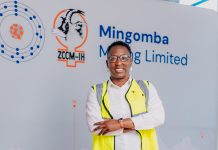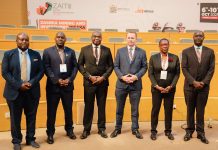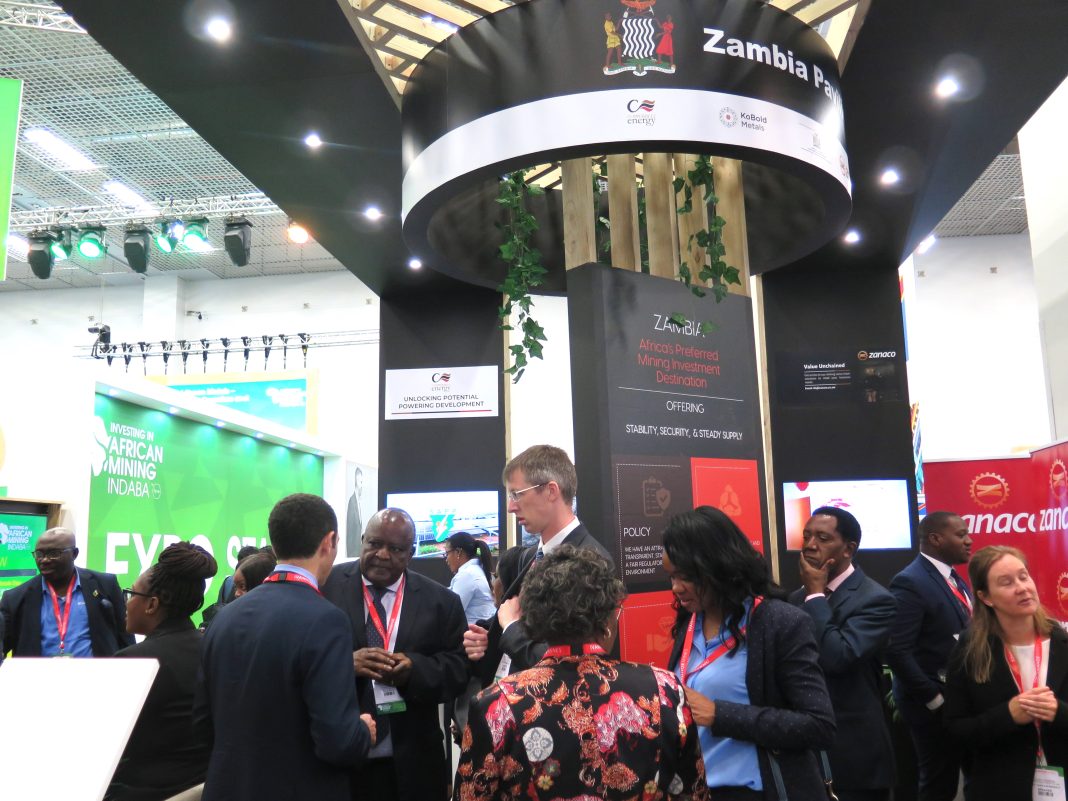It’s been eight months since Zambia used its moment in the limelight at the 2022 Investing in African Mining Indaba to deliver the message that President Hichilema’s Administration would be prioritising policy stability and predictability in the mining sector, the country’s biggest foreign exchange earner.
Now, with the 2023 Mining Indaba behind us, Mining For Zambia reflects on the impression of unity that Africa’s second largest copper producer created for the investors, political leaders, commodity traders, and companies across the mining value chain who gathered at last week’s event. Ministries, parastatals, the Zambia Chamber of Mines, and local and foreign investors all came together to demonstrate that ‘Team Zambia’ is aligned in its goal to harness mining’s potential to drive meaningful and lasting economic development. It was unlike anything seen in previous years, and delivered the unequivocal message that Zambia means business.
***
“This Indaba has been all about consolidating relationships and finding strategic new partnerships,” said Ms Dolika Banda, Board Chair at ZCCM-IH, Zambia’s state-owned mining investment company. Since 2022, Zambia’s mining industry has seen something akin to “a 180-degree turn,” she said.
The spotlight was once again on Mopani Copper Mines – a flagship asset in Zambia’s Copperbelt Province, where a lack of working capital has caused production to dry up almost entirely – but, unlike last year, the news circulating throughout Cape Town’s convention centre was optimistic. World-class mining houses are lining up to invest in Mopani, said Zambia’s Minister of Mines, Hon. Mr. Paul Kabuswe, who expects to secure a new investor by the end of March.
Ms Banda recalls: “When we were speaking last year, Mopani was on the verge of collapse. ZCCM-IH – together with Copperbelt Energy Corporation – had to take the lead in negotiating with different critical creditors to keep the lights on. We had no idea who was going to partner with us to help bring this mine to optimum production. Now we have a short list of potential strategic partners and have reached very high level discussions, especially this week.”
Securing investment to bring Mopani to optimum production is just one recent and positive step towards ramping up copper production, one of the current Administration’s most ambitious goals. In order to find the minerals of the future, investment in exploration is also essential, and progress is being made here too.
“Investment in exploration is also essential, and progress is being made here too.”
“Last year, we were listening to everybody talk about electric vehicles, and sitting on all of this potential not knowing what to do,” said Ms Banda. “Now, we’ve signed an agreement for ZCCM-IH and EMR Capital to partner with [mineral exploration company] KoBold Metals, to introduce state-of-the-art exploration technology into Zambia. It will be the first time that we’re seeing this happen in Africa. It’s very exciting!”
Finding the minerals of the future
Zambia is home to several ‘critical minerals’ that are needed to build renewable energy technology for reducing that world’s dependence on fossil fuels. (Think: electric vehicles, solar panels and li-ion batteries for energy storage.) These green technologies rely on copper, cobalt, manganese or lithium, each of which Zambia is endowed with and – as the world moves more decisively towards carbon neutrality and a green energy transition – demand for Zambia’s minerals is growing.
“Renewable energy infrastructure is much more metal-intensive than fossil-fuel-based energy,” said long-time Zambia watcher Mr Martin Lokanc, a Senior Mining Specialist in the World Bank’s Energy and Extractives Global Practice, who was a speaker at the event. “The Energy Transition is a game changer for Zambia’s mining industry.”
“The Energy Transition is a game changer for Zambia’s mining industry.”
Zambia’s role in the green transition was highlighted, too, by virtue of the fact that KoBold Metals – Zambia’s latest major mining investor, whose slogan is ‘Finding the minerals of the future with AI’ – stationed itself within the Zambia pavilion, beside its new partner, ZCCM-IH. The US-headquartered company is on a mission to reduce the world’s dependence on fossil fuels, and is leveraging big data and artificial intelligence – in combination with a top-notch team of data scientists, geologists, entrepreneurs, investors, and a dash of chutzpah – to locate undiscovered mineral reserves, and secure investment in the next generation of mines faster and more efficiently than is typical in this high-risk sector.
Photographers gathered as KoBold’s President Josh Goldman and ZCCM-IH’s Ms Banda shook hands, with the high-tech explorer attracting its fair share of foot traffic during the four-day event. But KoBold’s presence within the Zambia pavilion went beyond optics and photo opps. The company recently announced a $150 million investment to continue exploration at Mingomba in Zambia’s North-Western Province, where it has discovered substantial copper-cobalt reserves.

Singing from the same hymn sheet
Also exhibiting at the Zambia pavilion – alongside ZCCM-IH and a range of private sector companies – was the Ministry of Mines. It was another clear display of public-private sector cooperation, evident throughout the conference, with both Ministers of Finance and Mines being interviewed by international media alongside the Chamber of Mines to promote ‘Team Zambia’.
“We want to demonstrate that we’re taking a multifaceted approach to our aspirations for economic growth through the mining sector,” explained Ministry of Mines’ Principal Exploration Officer, Mr Chaanza Chifwepa. “I think one of the advantages is that we haven’t just come here as the Ministry – we have other institutions on board. Our Zambia pavilion includes Copperbelt Energy Corporation, we have Zanaco Bank showcasing their investment and capital facilities, and we have ZCCM-IH with us, which is the government’s mining and exploration investment vehicle. The Zambia Development Agency is represented too.”
“It was another clear display of public-private sector cooperation, evident throughout the conference, with both Ministers of Finance and Mines being interviewed by international media alongside the Chamber of Mines to promote ‘Team Zambia’.”
Zambia was certainly doing something right, and the pavilion buzzed with visitors. Journalists queued up to interview Ms Banda. Investors in one of the country’s newest gold mines and offtakers of artisanally-mined lithium on the other side of the country handed out business cards. There was simply no comparison with the 2020 event when the Ministry of Mines opted to exhibit alone.

Mr Misheck Mkokweza, Acting Managing Director of Ecobank Zambia Ltd, a pan-African banking company, agreed that Zambia had created a more memorable impression at the 2023 Indaba. “Our President made a keynote speech last year, and from then I think the interest in the country has increased. There’s more transparency and the macros are better now. About 70% or 80% of foreign currency earnings come from mining in Zambia, and Ecobank provides financing solutions – mostly to suppliers to the mines. At this Indaba we’ve met government officials, we’ve met investors in the country, mining companies, those who want to invest… I’ve had so many meetings, I haven’t had time to sit down!”
Opportunities across the mining value chain
Companies at every stage of the mining value chain were also represented at the four-day event and, naturally, a mining jurisdiction with an expanding sector is where manufacturers and suppliers of mining equipment and services gravitate.
Mr Jones Zulu, who oversees ‘Multi-Facility Economic Zones’ – or MFEZs – at the Zambia Development Agency also received a surprising number of enquiries. “This year has been so much better than last year for the Zambia Development Agency,” said Mr Zulu. “We’ve seen a lot of interest from people that are wanting to invest in Zambia or looking for partners to work with – in both mining and mining-related opportunities.”
The government encourages manufacturing companies to set up in special multi-facility economic zones in exchange for certain incentives, he explained. “Several mining companies have been enquiring about setting up [new] special economic zones. Other people want to set up inside an existing zone, so we’ve had interest from both angles.”
The strength of these Multi-Facility Economic Zones lies partly in the fact that they incentivise ‘value addition’, encouraging companies to add value to a product before exporting or consuming it locally.
“The massive [climate change-driven] growth in demand for metals is an opportunity for many African countries to seize income opportunities from the booming sector, and drive local and regional development,” said Mr Lokanc. “More importantly, this seems to be the moment for countries to extend mineral value chains towards the downstream, adding value to their products and diversifying their economies.”
Open for business: beyond the hype
Minister of Finance Hon. Dr Musokotwane personally took the opportunity to encourage investors to come to the country, during his ministerial address.
“It does not require much intelligence to tell you that if your main item of production in the economy [copper] is going down but your population is going up, it means poverty,” said Dr Musokotwane, not seeing the need to mince his words. “This is why the President declared that Zambia is back in business when he came to this forum last year.”
Zambia has to be open to investment from anywhere in the world, he emphasised. “We also had to examine ourselves: Why is it that we haven’t attracted sufficient investment into the country? And one key point to come out was that our mining taxation regime was out of line with the rest of the world. So, for the last two years, we’ve made necessary adjustments to correct this. We’re also changing the regulatory framework to make doing business easy in Zambia.”
“Why did we come to Indaba 2023?” he posited. “Our agenda is to continue with the theme of opening up for business. That’s not something that you do in one year – it’s a continuous process.”
He hastened to add that, as part of Government’s move to make doing business easier, visa requirements for several countries have been done away with. “Once again, Zambia is open for business! People are coming and we look forward to seeing you!”
Header image: The Zambia pavilion at the 2023 Investing in African Mining Indaba
See also: Zambia’s near-future in nickel























